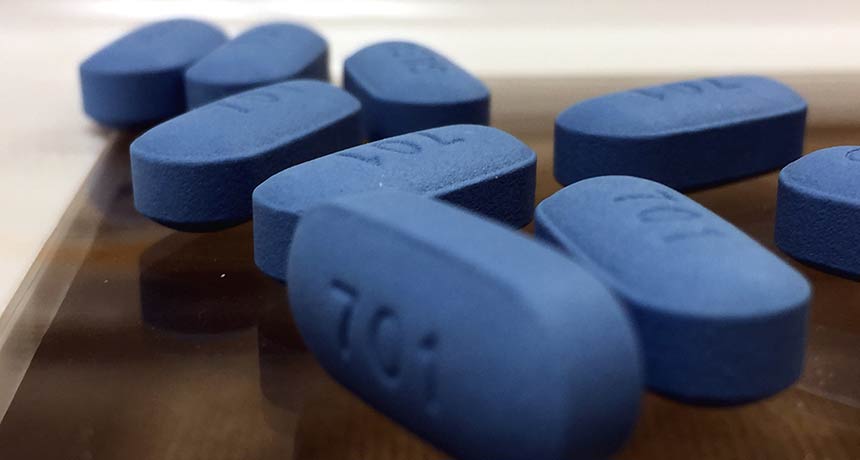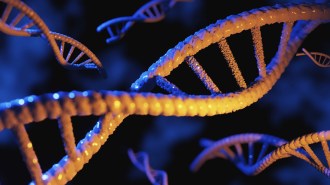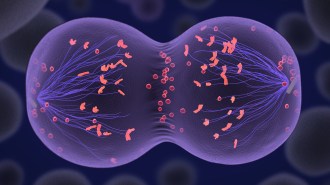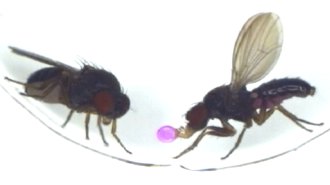Some people may have genes that hamper a drug’s HIV protection
Newly discovered genetic variants could explain why a common medication doesn’t protect all

RESULTS MAY VARY Genetic variants may stymie how well the antiretroviral drug tenofovir works in some people.
NIAID/Flickr (CC BY 2.0)






